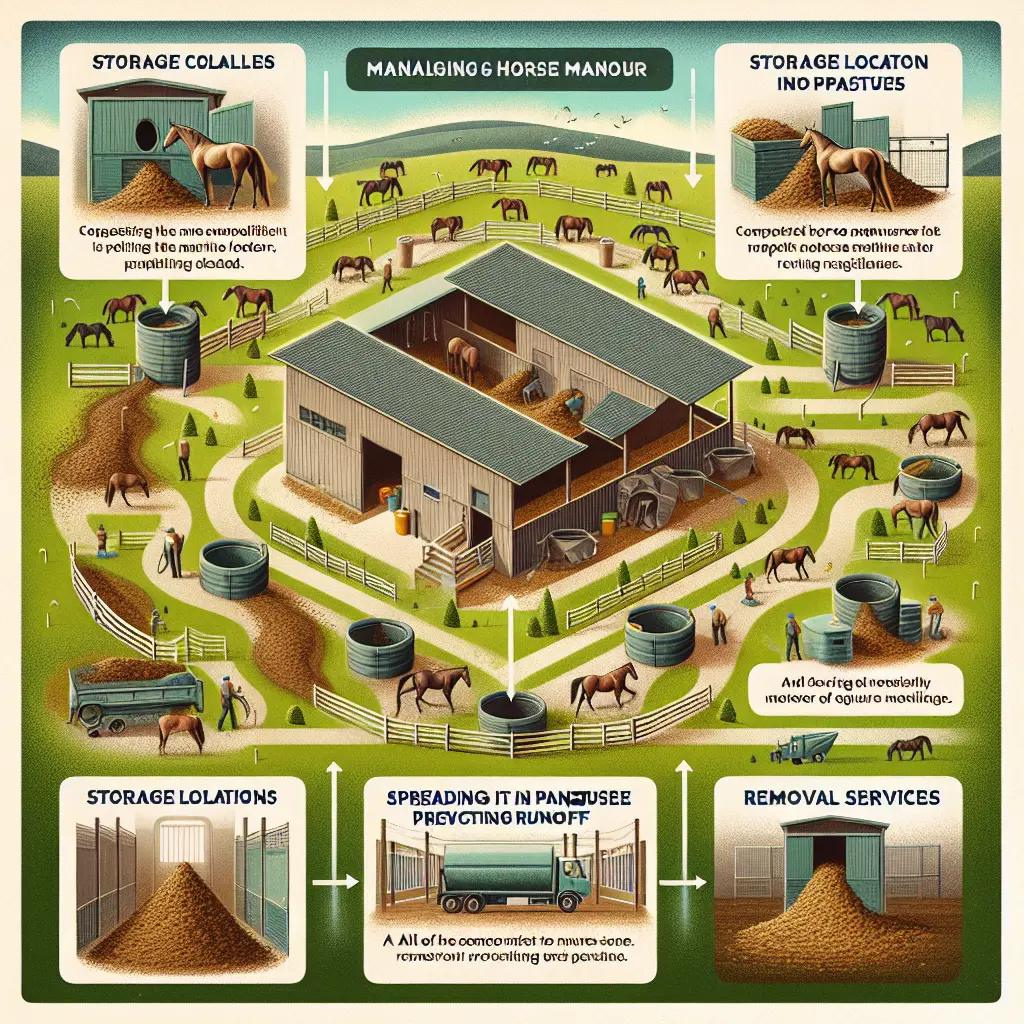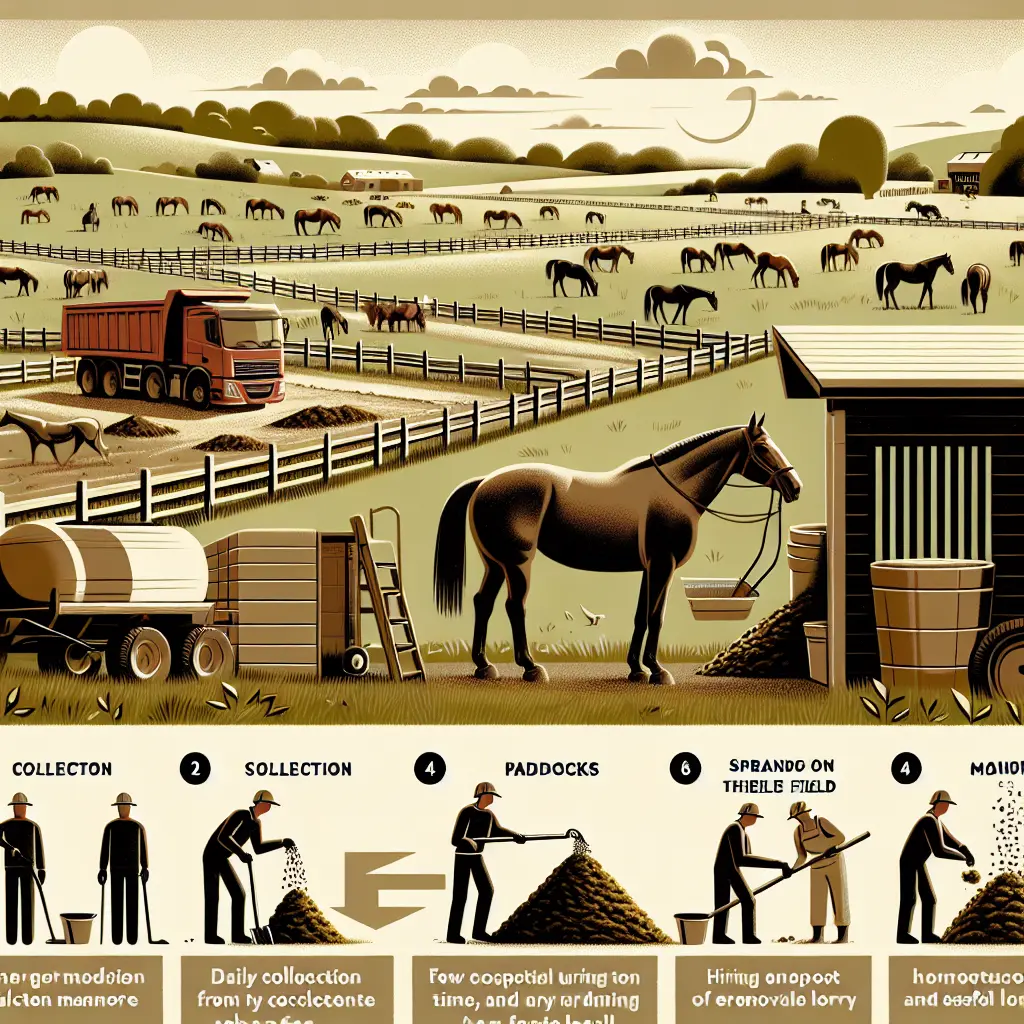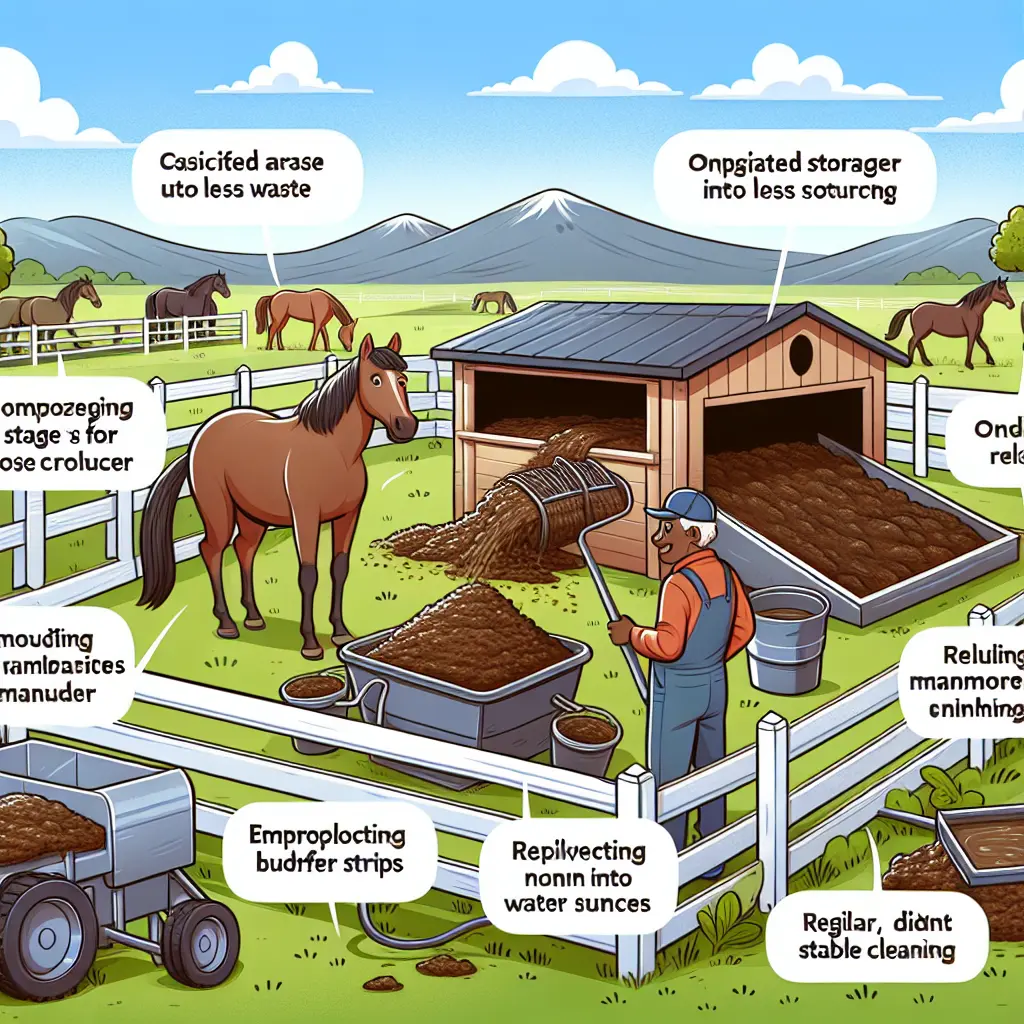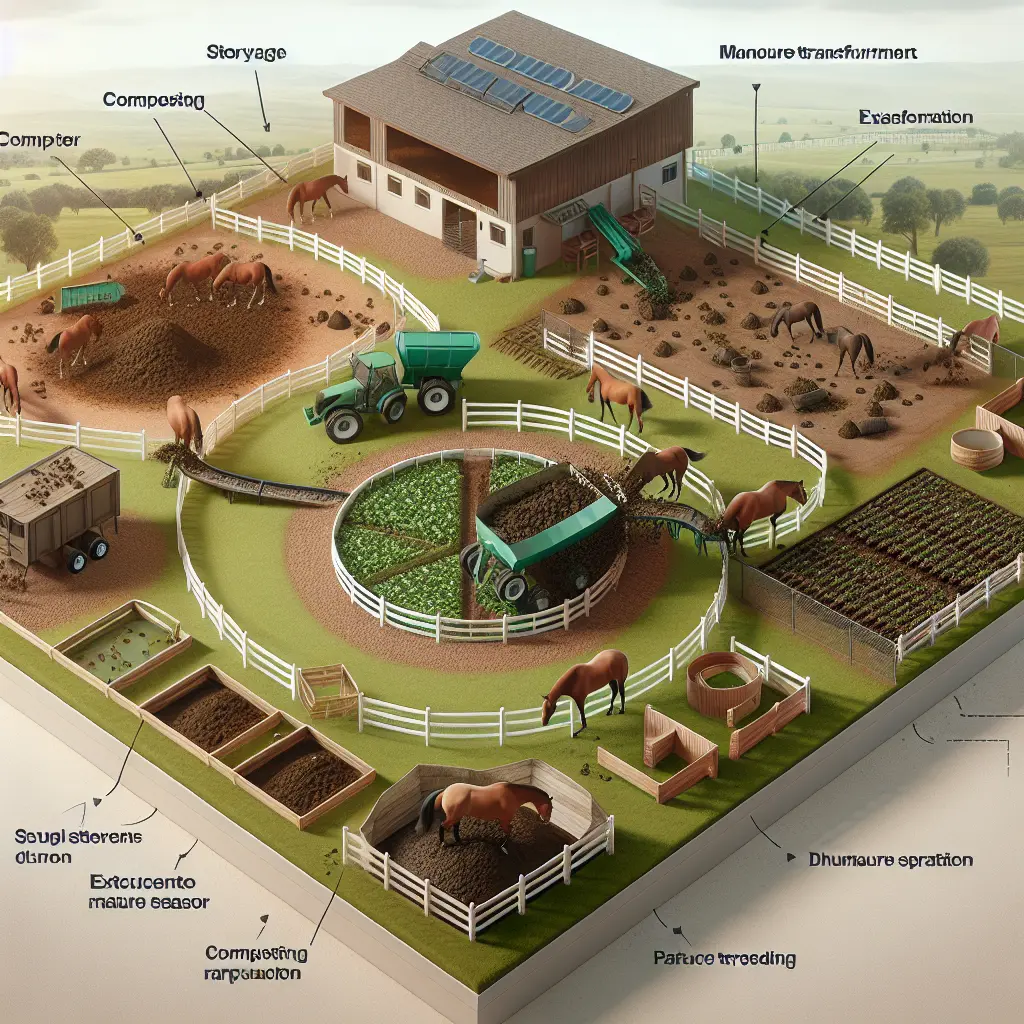Effective Strategies for Managing Horse Manure: Tips and Innovations
Managing horse manure might not be the most glamorous task associated with equestrian life, but it's certainly one of the most vital. A well-thought-out manure management plan not only contributes to a healthier environment for your horses but also protects local ecosystems from potential harm. In this article, we'll dive into practical strategies, recent innovations, and insightful tips for managing your horse manure.
Why Manure Management Matters
Each horse can produce a staggering amount of manure daily — approximately 50 pounds [Mad Barn]. Without proper management, this can lead to unsanitary conditions, unwelcome odors, and pest problems. Worse, improper handling can contribute to nutrient runoff, impacting water quality and local ecosystems [Greystone USA].
Key Elements of a Manure Management Plan
1. Manure Collection Frequency
Regular collection is an essential step to prevent manure buildup in areas where horses roam and rest. It's generally recommended to remove manure daily from stalls and paddocks to maintain a healthy environment [Sonomarcd].
2. Manure Storage
Designating a specific storage area, like a manure bunker or a compost facility, helps contain waste until it's ready for disposal or use. Such sites should be designed to prevent runoff and be located conveniently. Creating a systematic storage area is as crucial as deciding on disposal methods [Sonomarcd].
3. Manure Disposal Methods
Disposal options include composting, spreading on pastures, or hiring removal services. Each method has unique considerations and benefits. For instance, composting transforms waste into a valuable resource, while spreading can enhance pasture nutrients when done responsibly [Greystone USA].
Innovative Manure Management Techniques

Composting Manure
Transforming manure into compost can be a robust way to handle waste while producing nutrient-rich soil. This compost is beneficial for pastures and gardens, cutting down on synthetic fertilizer needs. Composting can take 30 to 60 days for pure manure, or up to six months with bedding added [Sonomarcd].
Benefits of Composting:
- Reduces Waste Volume: Decreases the need for large storage spaces.
- Creates Valuable Fertilizer: Improves soil quality with natural nutrients.
- Environmental Benefits: Minimizes nutrient runoff and groundwater pollution [Greystone USA].

Spreading Manure on Pastures
Applying manure directly to pastures enriches the soil when managed correctly. It requires careful consideration to avoid over-fertilization. Here's how:
- Soil Testing: Ensure that the nutrients align with soil needs to prevent oversaturation [Greystone USA].
- Timing: Best applied during growing seasons. Avoid rainy periods to prevent runoff [Greystone USA].
- Pasture Rotation: Allows manure to decompose fully, with intervals for pasture recovery before horses graze again [Greystone USA].
Using Manure Collectors
Investing in technology like a manure collector can make a world of difference. These tools streamline the collection and reduce manual labor, keeping your pastures cleaner and more welcoming.

Tips for Efficient Manure Management
1. Optimize Horse Diets
A balanced diet can minimize the amount of manure produced. Quality forage leads to better digestion, potentially resulting in less waste [Greystone USA].
2. Implement Water Management Strategies
Managing water flow can prevent manure from contaminating local water sources. Consider strategic landscaping to divert runoff effectively [Greystone USA].
3. Use Buffer Strips
Plant grass or shrubs along water bodies. These natural barriers can trap manure particles before they reach the water, contributing to cleaner ecosystems [Greystone USA].
4. Regular Stall Cleaning
Ensure a routine for cleaning stalls. Regular maintenance prevents manure build-up and promotes a healthy living space for your horses [Greystone USA].

Conclusion
In conclusion, effective manure management is essential in equestrian environments. Implementing strategies like frequent collection, structured storage, composting, and mindful spreading can transform manure into an asset. Innovative tools and practices further enhance these efforts, ensuring efficiency and sustainability. By embracing these techniques, horse owners contribute to the well-being of their animals and the environment.
Explore our Jodhpur Collection and other horse riding essentials like gloves and boots to make your riding experience stylish and comfortable. For extra horse care, visit our Everyday Horse Vitamins & Supplements collection. Remember, it's not just about maintaining their environment but also supporting their overall health and performance.


